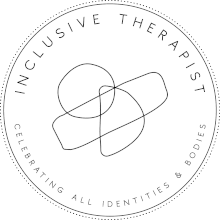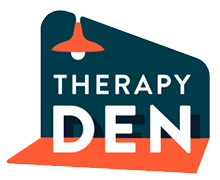North Texas
Plano EMRD Therapy
Release the past. Reclaim your life.
Request a Free 15-Minute Consultation
PLANO & FRISCO TEXAS
EMDR Therapy Can Help With
Eye Movement Desensitization and Reprocessing (EMDR) is becoming the gold standard for trauma treatment.
Trauma
Complex trauma can deeply affect how you see yourself, others, and the world around you. EMDR therapy is an effective, gentle way to process and heal these experiences so you can reconnect with yourself and move through the world in healthier ways.
PTSD
With PTSD, traumatic memories can be easily triggered, causing ongoing distress and making it difficult to navigate everyday life. EMDR therapy helps your brain gently move these memories to a place where they no longer overwhelm your daily experience.
Anxiety & Panic
Anxiety can create a sense of dread, causing you to avoid situations, withdraw socially, or struggle with persistent feelings of unease or fear. EMDR therapy helps resolve the emotional sources of your anxiety, letting your nervous system finally relax and recover.
Violent Crimes
Depression
Depression often shows up as persistent sadness, fatigue, loss of motivation, or difficulty feeling joy—even from things you previously loved. EMDR therapy helps your brain resolve emotional wounds beneath these feelings, allowing space for renewed energy and connection.
Relationship & Attachment Trauma
Childhood Neglect & Abuse
Grief and Loss
Negative Self-beliefs
Negative self-beliefs can lead to cycles of anxiety, self-doubt and shame, but EMDR therapy can help you reprocess the experiences that fuel critical thoughts and replace them with healthier, more empowering beliefs.
How Does EMDR Work?
Eye Movement Desensitisation and Reprocessing (EMRD) is an evidence-based trauma processing treatment that uses bilateral stimulation to reprocess traumatic experiences.
After EMDR, many report that they no longer see the world through trauma-colored glasses, and their trauma feels more like something that happened to them but does not define them.
EMDR can be conceptualized as reducing eddies along a river so that the river flows more smoothly and there is less chance of whatever is floating down the river getting caught up in the eddies (trauma triggers).

PLANO & FRISCO TEXAS
Three Main Parts of EMDR
Technically, EMDR is an eight-phase process, but you won’t notice the transitions between phases. It will feel like three main parts to you.
1. History & Background
We will start with getting to know about your life and what brings you to therapy. While we talk, I’m looking for:
- Symptoms (anxiety, insomnia, intrusive thoughts, etc).
- Negative cognitions (“I’m not enough”, “I don’t deserve love”, etc)
- Origin story (How did you come to believe this?)
- Red thread of how this has impacted your life.
- Bodily sensations (Where do you feel this in your body)
- Image that represents the above (don’t worry if you can’t see images in your mind).
Once we know the above list, we can move into the next part of EMDR.
2. Tapping in Resources
To process traumatic events, you’ll need to have one foot in the past and one foot in the now. It will be important for you to learn how to regulate intense emotions and have resources to draw on in between sessions, and if things start to feel too emotional (don’t worry – we’ll go at your pace, and I’ll follow your lead so you’ll be in control throughout the process).
We will tap-in the following resources:
- Calm & peaceful place
- Container
- Protective figure
- Nurturing figure
- Wisdom figure
Don’t worry – I will guide you through this. It’s a bit like a guided meditation.
3. Reprocessing Trauma
Once we have the basic info and have tapped in resources, we’ll move into reprocessing. I’ll do a demonstration for you, so you know what to expect. Once ready, I’ll ask you to bring up the negative cognition, feelings, bodily sensations, and an image representing the origin story and then have you start bilateral stimulation.
Bilateral stimulation options:
- Butterfly tapping (cross your arms across your chest and tap on your shoulders).
- Wireless tappers that vibrate on and off.
- Wireless headphones that play a tone.
The tappers and headphones can be used together, if you prefer.
Every 25-ish seconds I’ll ask you to pause and I’ll inquire about what is coming up for you. This is your chance to say a word or even a sentence or two about what’s going on inside your mind. I’ll probably tell you to notice a feeling or say, “Go with that” and we’ll resume the bilateral stimulation.
EMDR takes many sessions to fully process trauma, so it’s not a quick process, but it’s a very effective trauma treatment.
Sage Finch Counseling
How Do Trauma Memories Impact You?
Adaptive Information Processing (AIP) Overview
Disruption of Processing
Your brain is really good at adapting to your environment. When you experience trauma, you adapt for survival, but those adaptations may later become maladaptive and cause problems.
EDDYS IN A RIVER
Trauma is sort of like an eddy in a river. You want the river of your Adaptive Information Processing (AIP) system to be wide and smooth. Trauma causes eddies that narrow the river and catch whatever is flowing down the river.
Trauma-Colored Glasses
Your post-trauma thoughts, feelings, and experiences become the lens through which you experience and make sense of the world – our trauma colored glasses.
Trauma Impacts
“Trauma can include both “big T and “little t” events that undermine your sense of self-worth, safety, control (or choices), and autonomy over your life.
Sage Finch Counseling
Why Choose EMDR?
There are lots of trauma therapy options. Why is EMDR a good choice?
Emperically Validated
Eye Movement Desensitisation and Reprocessing (EMDR) is backed by extensive research and clinical trials.
Gets to the Root
EMDR gets to the root cause of trauma, by helping you reprocess trauma and integrate the memory in a healthy and adaptive way.
Doesn't Rely on Homework
EMDR is done in-session and doesn’t rely on out-of-session homework, as would be expected for Cognitive Behavioral Therapy (CBT) and other treatment modalities.
Plano EMDR Therapy FAQs
Will I have to relive my trauma in detail during EMDR?
No, EMRD therapy helps you process trauma without extensive retailing of the details. We need to identify the negative cognition (what do you believe about yourself as a result of the trauma, emotions, body sensations, and an image that represents the trauma. You can share only as much as you’re comfortable with because the focus is more on processing feelings and body sensations rather than reliving the events.
In fact, there are people with security clearances who are not allowed to talk about their trauma, and yet we are still able to process the trauma through EMDR.
How many EMDR sessions will I need?
There is not a set number of EMDR sessions required for successful trauma processing – it varies by individual and situation. Processing a single recent incident can be fairly quick, but it takes a lot longer to process trauma that happened over years. It’s not unusual for EMDR to take many months.
Can EMDR help if I don't have clear trauma memories?
Yes! EMDR is more about the feelings, sensations, and negative cognitions (beliefs) that you developed as a result of your trauma. Clear memories are not necessary for healing.
Can I do EMDR even if I have aphantasia and cannot see mental images?
Yes! EMRD can also be used with individuals who have aphantasia (cannot see mental images). We can work with emotions, bodily sensations, smells, sounds, and the negative cognition to reprocess your trauma.
COLLIN COUNTY TEXAS
Take the First Step
Frisco LGBTQ+ therapy: Your dedicated space for healing and growth in Plano, Texas (just south of Frisco).
Sage Finch Counseling
8105 Rasor Blvd, Suite 225
Plano, TX 75075
Most of our clients come from Collin County and surrounding areas:
|
|
Request a Free 15-Minute Consultation
* By clicking Submit, you permit us to contact you by email, phone, or text. Don’t worry – we won’t send you junk. It’s just to schedule a consultation and see if we can help you!






